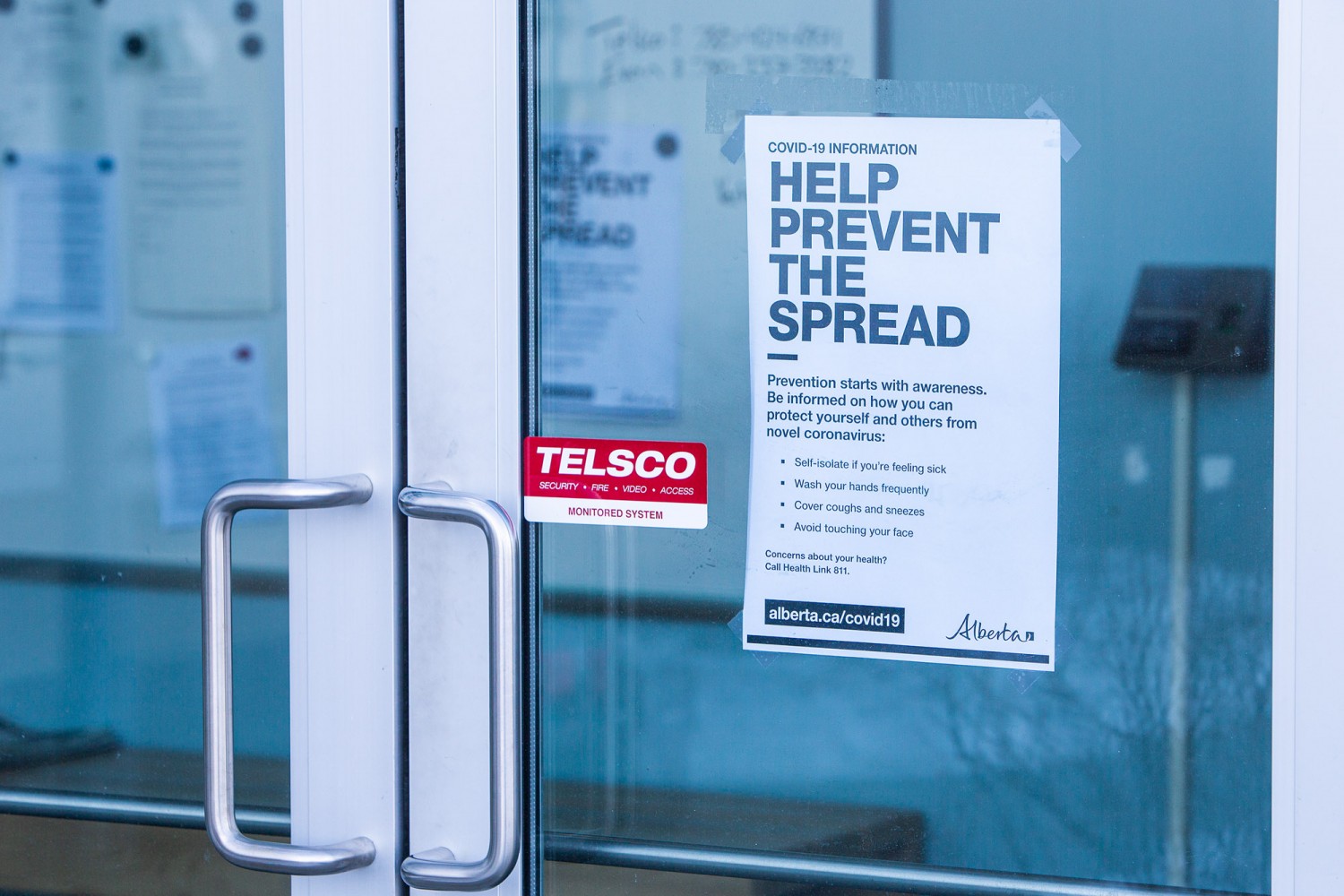The risk of catching COVID-19 in Alberta is low. That doesn’t mean we shouldn’t take the high road and face reality during this pandemic.
“What was once an alarming but distant tragedy in China is now, in a slow-to-dawn suddenness most saw coming but didn’t accept, Canadian reality. Or at least the start of what is expected to become reality.” Kelly Crowe
Social distancing is one of the most challenging things many Canadians have ever been asked to do.
Many churches with gatherings of 250 or more are voluntarily suspending gatherings and offering online services. School closures and cancelled or suspended events look like a society in retreat. But in fact, it’s a society taking control of a situation – a country pulling together in a collective effort to head off disaster.
On March 13th Dr Michael Werner, Director of Critical Care Services for Michael Garron Hospital in Toronto, warned “…the COVID-19 situation is dire and may soon be completely out of control. We have some time before the surge in patients hits Canada. At least one week or longer. Two weeks from now I’m going to be too busy to do anything but work.”
Love in a pandemic is having the will to do the right things.
Protect and provide for the vulnerable, the elderly, the immune compromised, or asthmatics. Now is the time for churches, leaders and believers to shine. We must help believers understand that showing up is not about faith and staying home is not about fear.
Christians are called to be harbingers of heaven in all of the ways we hold hope, keep faith, trust God, love our neighbors, and especially love the poor and the sick.
If social distancing feels silly, that means it’s working. If it feels like you’re avoiding healthy people for no reason, that’s actually good. That is love in a pandemic.
Loving Steps You Can Take
- At Bethel Church in Barrhead we are sanitizing highly touched surfaces before and after every service such as doors, handles, tables, water fountains, check-in stations, and sinks.
- Our staff and volunteer teams will wash their hands frequently and stay home if they are sick.
- We will provide additional hand sanitizer stations for everyone to use.
- Offering plates will be located to the back of the auditorium after the service so you don’t need to pass them down the row. Remember, you can also give online.
During this time, we are asking you to help stop the spread of the virus in the following ways:
- Stay at home when you or a family member is sick.
- Wash your hands often with soap and water for at least 20 seconds, especially after going to the bathroom, before eating and after blowing your nose, coughing, or sneezing.
- Cover your sneeze or cough with a tissue or your arm.
- Get in the habit of NOT touching your face so often.
- Forgo shaking hands at church for a wave or a friendly smile.
- If you or someone you know tests positive for COVID-19, please let us know so we can find a way to help, pray for everyone involved and take any necessary precautions.
Mental health experts’ advice.
“Older adults, especially in isolation and those with cognitive decline/dementia, may become more anxious, angry, stressed, agitated, withdrawing, overly suspicious during the outbreak/while in quarantine. Provide emotional support through informal networks (families) and mental health professionals. Share simple facts about what is going on and give clear information about how to reduce risk of infection in words older people with/without cognitive impairment can understand. Repeat the information whenever necessary.”
Stand with health care providers, first responders, front line workers and elected and appointed officials leading through uncharted waters.
Our moment
2020 may be the first time in two millenniums that Christians choose NOT to gather en masse to celebrate the Resurrection. That’s OK.
The COVID-19 pandemic is uncharted territory for all of us. Not so ancient history. The Roman world was full of plagues. Epidemics regularly decimated cities and regions. Though ancient people did not understand the germ theory of disease, they knew enough to flee cities, if they had the means to do so.
The first Christians did not flee the plagues. They stayed, and they served. In his book The Rise of Christianity, sociologist Rodney Stark develops a statistical argument that this commitment to providing meaningful care to people stricken by plagues was a major contributor to the growth of the early church.
When this pandemic has passed, what will be remembered?
Will society remember that Christians took immediate, decisive action to protect the vulnerable, even at great personal and organizational cost?
Will they remember that celebrating the resurrection we made clear that serving and worshipping God was the greatest and most essential task of our lives?
APPLICATION: How are you helping prevent the spread? Do you know people who need support? Please leave a comment below.
Resources
Witness in the Plague – Relevant info from a missionary in Hong Kong.
Hope grows here. We share stories that inspire people, build faith, and offer lasting purpose.
We’d love to have you Subscribe to REVwords. We’ll put helpful content into your inbox early Mondays to get your week off to a good start.




